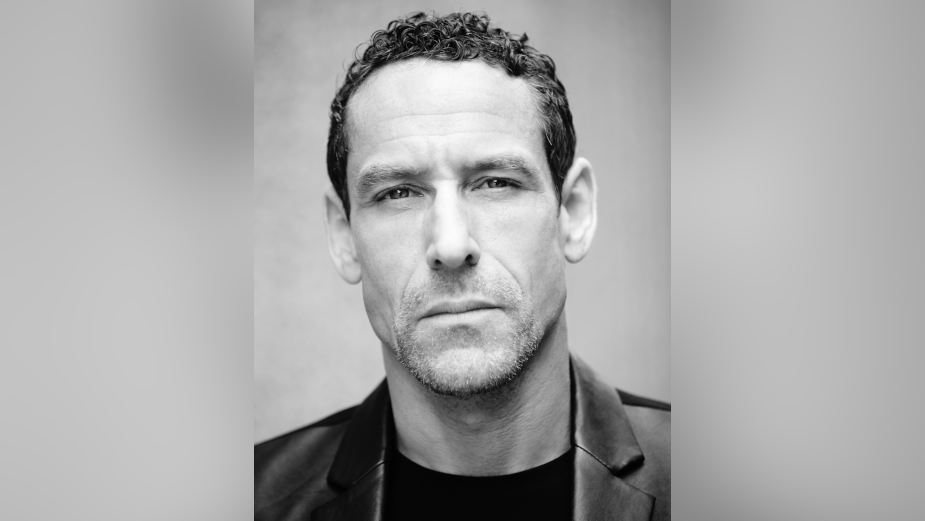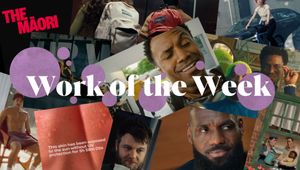
Thinking In Sound: Why Tim White Is Most Interested in the Emotion of Music

Tim White grew up in Toronto in a musical family. His father taught singing and led several choirs, whilst his aunt was Portia White the famous opera singer. Tim started on piano when he was around 10, then started playing bass at age 14. He then immediately got into a bunch of bands (‘cause everyone needed a bass player). Tim attended Berklee College of Music in Boston for a couple of years, practising bass non-stop.
At 25 years old, Tim signed to Universal Music (called MCA Records then) with his band The Headstones. The band toured. And toured. And toured some more. The Headstones made a bunch of albums, a few of which achieved gold and platinum status, Tim just generally enjoyed being a rock star during this time.
The band had to disband in 2002 due to, well, let’s call it over-indulgence. At that point Tim shifted to composing, at first for commercials, then long-format stuff which came later. He took on the challenge of scoring anything, sometimes even for free if the project was interesting enough. As a result, Tim developed a broad musical taste.
Tim had also been doing voice overs on the side. He got into directing during a music session when the voice director didn’t show, and the producer asked him to take over. It was incredibly nerve-wracking, directing for the first time with a roomful of agency people and clients. Tim must have done the right thing because he was asked back the following week.
Earlier this year Tim was lucky enough to be hired by Circonflex as the English voice director.
LBB> When you’re working on a new brief or project, what’s your typical starting point? How do you break it down and how do you like to generate your ideas or response?
Tim> Ideally it starts by having multiple conversations with the agency/client. I encourage them to provide as many references as possible, musical or otherwise, and then have discussions about why those things appeal to them.
From there it’s about interpretation, which is also a discussion or three, and once we feel we’re all on the same page, we run with that.
LBB> Music and sound are in some ways the most collaborative and interactive forms of creativity - what are your thoughts on this? Do you prefer to work solo or with a gang - and what are some of your most memorable professional collaborations?
Tim> I think I prefer working with people! Working alone, I don’t know for sure if it’s good until someone else hears it. Almost all my collaborations have been fun and productive; you tend to remember the ones that weren’t.
LBB> What’s the most satisfying part of your job and why?
Tim> This might sound funny, but the most satisfying part is when we get to a place no one even considered at the outset. I love the discovery and surprise element of making music.
LBB> As the advertising industry changes, how do you think the role of music and sound is changing with it?
Tim> Certainly there’s a consideration for attention span;, people are more savvy and therefore they expect more from their content. This has to be reflected sonically as well.
LBB> Who are your musical or audio heroes and why?
Tim> Bowie stands out in so many ways. Constantly innovating and then completely trashing those personas to go a different direction. Ludwig Göransson for his mastery of multiple genres and upending them. I love that.
LBB> And when it comes to your particular field, whether sound design or composing, are there any particular ideas or pioneers that you go back to frequently or who really influence your thinking about the work you do?
Tim> Not specifically, usually it’s the opposite way - I’ll be writing a part and think “oh that reminds me of this song” and I’ll go listen to that artist for a bit.
LBB> When you’re working on something that isn’t directly sound design or music (lets say going through client briefs or answering emails) - are you the sort of person who needs music and noise in the background or is that completely distracting to you? What are your thoughts on ‘background’ sound and music as you work?
Tim> It has to be mostly instrumental, or somehow hypnotic. Reggae, classical, and downtempo are all good for that. Otherwise I get distracted by the lyrics!
LBB> I guess the quality of the listening experience and the context that audiences listen to music/sound in has changed over the years. There’s the switch from analogue to digital and now we seem to be divided between bad-ass surround-sound immersive experiences and on-the-go, low quality sound (often the audio is competing with a million other distractions) - how does that factor into how you approach your work?
Tim> Well I keep things at a high bit-rate, so if it has to be squashed down to mp3 or some other compressed format, at least you had good stuff to start with. Unless you want things to sound bad in order to illustrate something else.
LBB> On a typical day, what does your ‘listening diet’ look like?
Tim> If it’s not specifically work-related listening, then it’s whatever’s playing in our lounge.
We all have access to it, so on a given day you can hear everything from Can, to Dua Lipa, to Slayer, to Knucks. Or maybe during a session someone will mention a musical artist and I’ll check them out later that day.
LBB> Do you have a collection of music/sounds and what shape does it take (are you a vinyl nerd, do you have hard drives full of random bird sounds, are you a hyper-organised spotify-er…)?
Tim> I’m not a collector, I just have some records, ya know? Spotify is great to randomise and discover new songs and artists. There’s two other sites I use to discover music: Every Noise At Once and Radioooo.
LBB> Outside of the music and sound world, what sort of art or topics really excite you and do you ever relate that back to music?
Tim> For sure! Just being in an art gallery or seeing a great piece of street art can set ideas in motion. Or sports, you know how great athletes are like great dancers? You can see the rhythm when they move.
LBB> Let’s talk travel! It’s often cited as one of the most creatively inspiring things you can do - I’d love to know what are the most exciting or inspiring experiences you’ve had when it comes to sound and music on your travels?
Tim> We take it for granted, but the ambient sounds of cities or in nature are amazing and of course totally immersive. Just close your eyes!
One of the great things about travelling is hearing indigenous music and sounds; I mean, you haven’t really heard the essence of reggae until you go to Jamaica.
LBB> As we age, our ears change physically and our tastes evolve too, and life changes mean we don’t get to engage in our passions in the same intensity as in our youth - how has your relationship with sound and music changed over the years?
Tim> It’s better! I’m less judgy about what music is cool and more interested in the emotions it creates.















